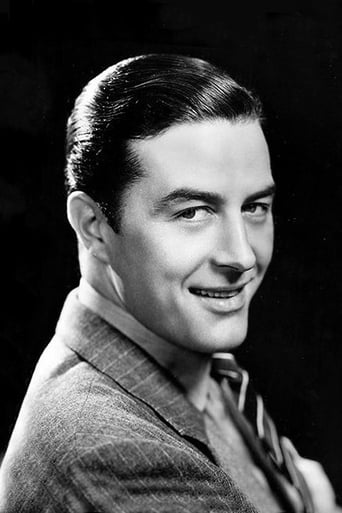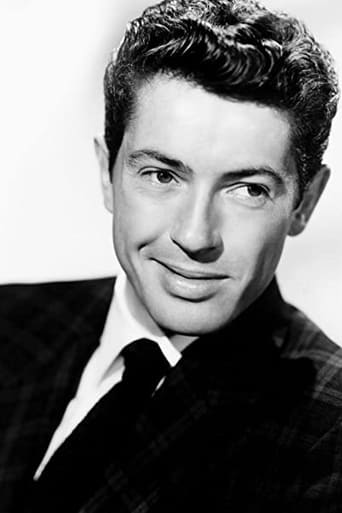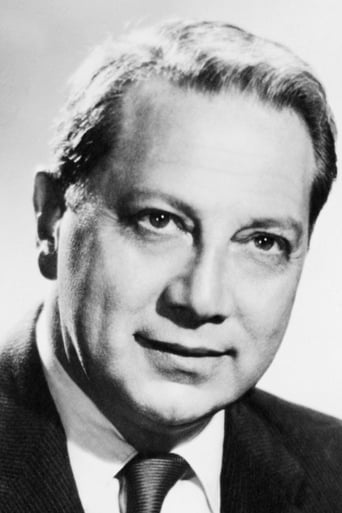Icons76
All other reviewers have largely,and, from very different prospectives, told us all about we needed to know about the story,a lurid 1910's upper Manhattan's scandal, its acute sensationalism and the 3 principals, all victims of their 'so typically' scandalous,yet, "attractive" misfortune, one of the most famous classic American tragedies in a way! But,plot aside, what bothers me the most, by reading even too patiently, all the other reviews posted so far, is how terribly quickly, all the other people poorly rated this movie. with no consideration nor understanding of the different times,immediately labeling this movie, as mostly outdated, annoying, ridiculous, boring,and even badly done! This is just an outrage! An outrage to the greater Hollywood of the Golden days: are people unable to understand that a movie filmed actually in 1955, is still a great movie,today, certainly without CGI or the visuals generated extravaganza's to which we are compulsively used (or addicted,rather?) today? I am a huge Old Hollywood films buff, but,i do indeed recognize very often a film's limits,which here are only a different narrative, that is still extremely effective, even if paced differently, and told without all the (natural) progress and maturity that the art of the craft of filmmaking has achieved, yet loosing something else forever, and that is, if i may say, that magical quality those movies, then truly owned, and, that some may still recognize today, especially, if watching such material, properly, in a restored wide screen print, and on the silver screen,where they belong! People may then be surprised of what a show they could still admire, while, also having a whole different version of a story still developed with a lot more depth, talent, and visionary creation, than what is barely left today to our always more formulaic, more modern, and more all the same, films we get, certainly, more attuned to our standards, but without any wiser basic execution! And, on top, like a few did,it is very unfair, almost a bit vulgar to me, to critique, the magnificent directorial work of true iconographic master director Richard Fleischer, his very cinematic rendition of this classic tale of American classic icons: if someone had to say something, i would ask then who could direct today with taste,such a disturbing study like this one? The direction here is exquisite, and, yes, filmed in gorgeous CinemaScope and De Luxe Color (and not Technicolor!) a more pastel version of the saturated color film stock then in use, but, primarily a classic exclusive of 20th Century Fox throughout the 1950's and 1960's up to the 1980's believe it or not! The cinematography,the rich costumes, accurate set dressing, production design, hair and make up, are all stunning, the acting adequate, with great professionals! Wooden? No. That was the way people would act before the advent of the Actor's Studio and of the new American Cinema that came a decade later, completely changing the style and the Studios themselves, and, as a proper evolution of our Time! And, Monroe pledged for the Collin's part, and with the new look for her recreated by Milton Greene, I am sure she would have been quite a sensation, believe me, i only wish i could watch today,how Monroe, with her new, and ,more adequate make up, hair, and with the direction of a better director,could have played Nesbitt! I think she would have made probably a Classic of this one, and absolutely a stunner! And, especially, as it was supposed to be, if the Granger's role, would have then been played by James Dean (Yes, did anyone know??) who'd said to be extremely interested in portraying what was in fact a juicy and perfect role for him, a part he could have brought to even higher sinister weights! While, giant Frederic March, had been rumored for the part who eventually went to Milland, and that is, when Fox, "as usual stupidly" aggravated with Marilyn for having left Los Angeles, promptly nixed to Monroe the role! A role,of course, they knew she wanted, but, almost to dictate who had the power, they said no to Marilyn, knowing that so they'd be having both Dean and March to withdraw immediately, when, gorgeous, yet virtually unknown (then) Collins was to play the lead! Fox basically spoiled an unique occasion, a memorable film just to punish the star: they were mad, since MM, after refusing to make 3 pictures, one after another (one of them,co-starring Frank Sinatra,Eve Arden,and Robert Wagner "Pink Stockings" to be directed by Hathaway, was already almost in production, and quite honestly possibly a decent romantic comedy, but, Marilyn's opinion was that Nunnally Johnson had again built an almost basically decorative role for her, without any substance in it!) had left Hollywood, preventing Fox to banquet on her! But her commitment to studying was so incredibly strenuous, that when she finally came back to work at Fox an year later,for the melancholic BUS STOP, with the patient and wise direction of the great friend Joshua Logan, a true clever director,Marilyn delivered such an incredibly modern,touching,layered performance,only the Academy of those grim years refused to acknowledge, while, even her most stubborn of her detractors, had at long last, to admit that "the Lady could act, and not just being a tramp!".
MARIO GAUCI
This is a glossy melodrama (scripted by Charles Brackett, who also produced, and Walter Reisch) about a famous early 20th century crime of passion. The love triangle comprises Ray Milland (ideally cast but who isn’t particularly stretched by his role of architect Stanford White), Joan Collins (in one of her better Hollywood parts – by the way, the real-life Evelyn Nesbitt acted in a few Silents herself and served as a consultant on this film!) and Farley Granger. The latter is a revelation: usually playing self-effacing types, here he’s arrogant, temperamental and possessive; he reminded me of Robert Ryan’s equally neurotic millionaire in Max Ophuls’ CAUGHT (1949). Besides, Granger’s jealous probing into Collins’ past relations on their wedding night basically replicated a scene from Luis Bunuel’s EL [1952]; and, likewise, his murder of the Milland character over Collins presents a similar situation to a subplot in the Pre-Code BABY FACE [1933] – which, interestingly enough, I watched the very next day! Fleischer handles the proceedings efficiently enough (he was certainly adept at real-life crime stories, as his later dramatizations of the lives of other infamous murderers such as Leopold and Leob, Albert De Salvo and John Christie – in COMPULSION [1959], THE BOSTON STRANGLER [1968] and 10 RILLINGTON PLACE [1970] respectively – can attest) but, here, he’s somewhat bound by the commercially-minded formula approach of the studio system which, for instance, necessitated the inclusion of corny musical numbers…even if Collins’ character does start off as a dancer in a variety act. Unfortunately, too, the courtroom scenes aren’t the most compelling ever put on film – but they’re nonetheless elevated by Luther Adler’s presence as Granger’s defense attorney. Another valued appearance is that of author Cornelia Otis Skinner: this was one of only 4 films she did (which include the classic ghost story THE UNINVITED [1944], also with Milland, and the existentialist drama THE SWIMMER [1968], starring Burt Lancaster); she has one interesting scene towards the end where Granger’s mother recounts his overly-protected childhood to Collins, and which inevitably marked his character forever. Collins’ mother, then, is nicely played by veteran character actress Glenda Farrell.While THE GIRL IN THE RED VELVET SWING has been a regular on Italian TV over the years, I had first watched it as a kid; I decided to check the film out again now in view of Fox’s upcoming SE DVD, as part of THE JOAN COLLINS COLLECTION. By the way, the final scene – with Collins doing the titular stage act for impresario Emile Meyer, who’s eager to exploit her new-found notoriety – ends the film on a satisfyingly ironic note.




